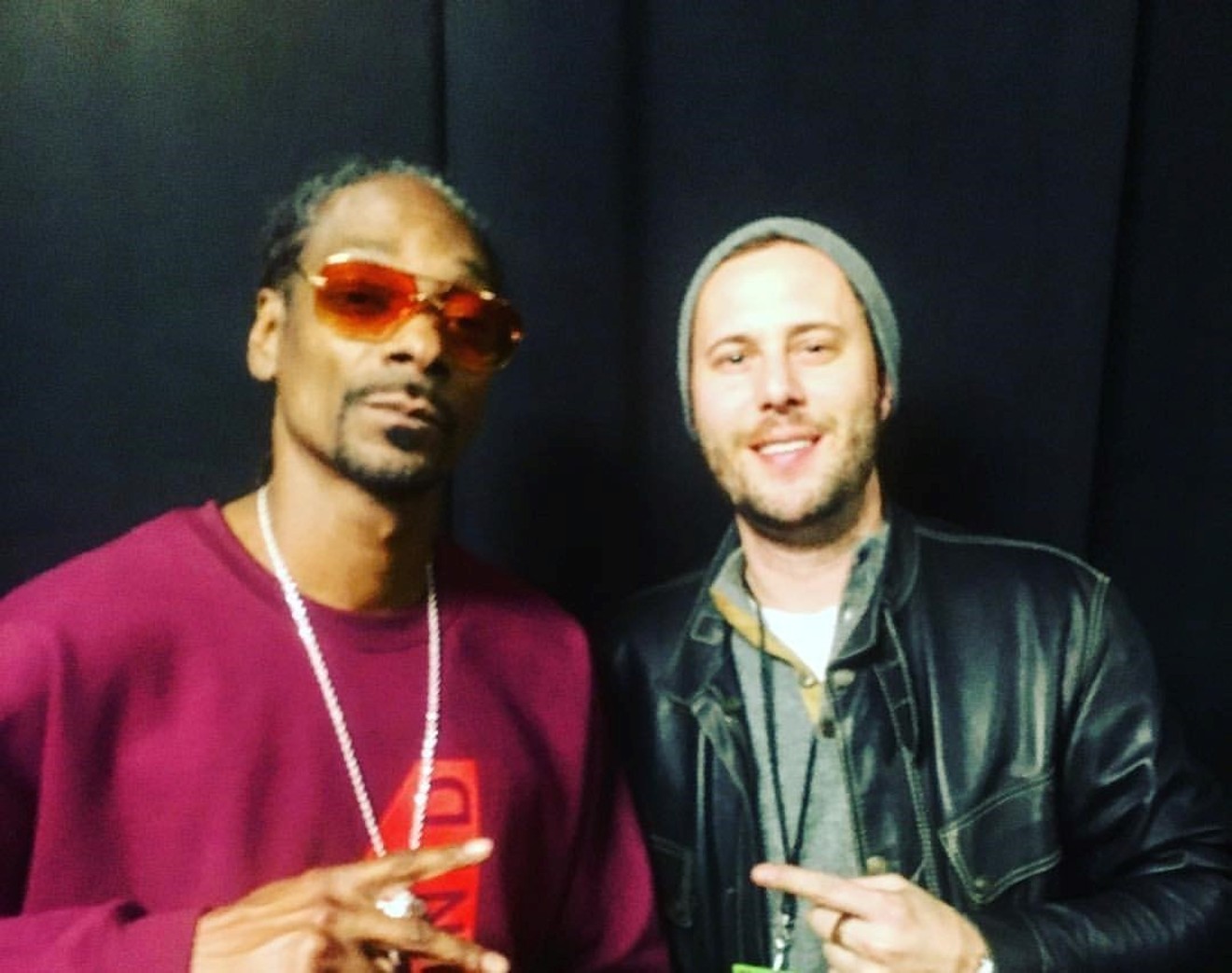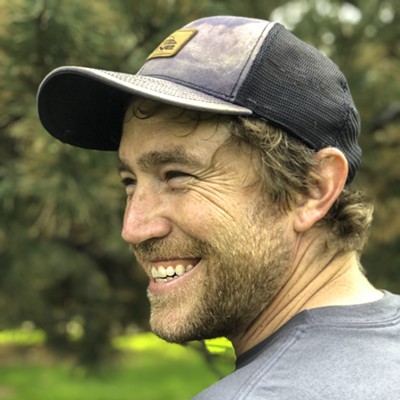Great talent buyers possess a special gift for spotting artists who will attract crowds and sell out venues — and that gift can take years to hone. In the case of AEG talent buyer Jonny Shuman, it took nearly fifteen.
Working intermittently for the SoCo Nightlife District between 2005 and 2013 before finding a home with AEG in 2015, Shuman sold out Denver clubs with tomorrow’s big DJ names and tanked shows with yesterday’s heroes of the stage. Ups and downs are all part of the talent-buying game, and he’s currently at the top of his.
Now, after an impressive stint at AEG Live Rocky Mountains booking a wide variety of artists at Colorado venues, Shuman is leaving the Front Range market for California, where he’ll use his talents to build national tours with high-profile artists.
Westword caught up with the promoter before his move to talk about what he learned working in Denver’s music scene.
Westword: What will the new job entail, and how does it differ from your previous work with AEG?
Jonny Shuman: I’m looking forward to my new position in L.A., working with and learning from the touring team at AEG. In Denver, my job was focused on promoting and booking shows in our city, state and sometimes region. My new gig will be focused on building tours going around the country and sometimes the world. I have always been very passionate about finding and helping develop new talent on the live side of the business, and being able to do that on a national scale is an exciting step in my career, to say the least.
What kinds of acts have you been specializing in during your time at AEG?
Since the beginning of my career, I have specialized in hip-hop, R&B, funk, soul and the whole spectrum of dance music. I came up as a fan first, bouncing between the hip-hop and rave/burner scenes. That has always influenced what I have wanted to bring to the people as a promoter.
How has the hip-hop community transformed in the past ten years? It seems local support has been bolstered by help from national influence. Did you play a part in that?
The culture and music are constantly evolving. That’s what makes hip-hop such an exciting lane to live and work in. Rap just surpassed rock and roll as the most consumed genre in the U.S. Seven out of last year’s top ten albums were rap/hip-hop.
As far as local support [goes], Denver has a lot of great hometown artists. It’s up to the headlining act if locals will be added to a show, not the promoter. I have always tried to encourage headliners to allow a local opener or two. I think it’s important to foster as many opportunities as possible for artists on the come-up. And if they rock it, we generally have them back. I have also tried to empower Denver artists to take a chance on their own headlining shows. Be it selling out a hundred-cap club out or a thousand-cap club, it’s going to be way more money than an opening slot on a national artist’s show.
How has Denver’s music landscape changed since you’ve been a talent buyer?
When I first started working in music twelve years ago, hip-hop and dance music, especially, were still pretty underground genres here. Now rap and EDM are dominating and split into so many sub-factions that cross generations, styles and BPMs and sell a lot of hard tickets.
Also, the city as a whole has grown hand over fist since I started. There is more demand than ever before, and that demand is being met by a lot of hardworking people in Denver’s live-music business that I have had the privilege of working beside. It’s what makes this a hard place to leave.
Can you describe the biggest challenges you faced transitioning from SoCo Clubs to AEG?
Regas [Christou] and the SoCo team are family, and we did a lot of amazing shows there over the years. To this day, [Regas] continues to be an unshakable force in this town, and I learned a lot from those experiences. I don’t think I’d be where I am without him handing me the checkbook and letting me take so many big swings at such a young age.
Transitioning from the soft-ticket space of the nightclub world to the hard-ticket space I live in now was really a natural transition for me, because so many of the artists I was working with at the time were also making, or had already made, that leap. I was ready to grow with the artists I was booking from the smaller venues up to Red Rocks and beyond. It’s really been a trip!
Given your experience, what trends do you see as catalysts for Denver’s music scene? Has the cannabis industry affected the music industry? Has the influx in transplants made it better for the industry?
Look, I think it has been a real perfect storm of all the right ingredients to get the witches’ brew of such an epic cultural renaissance we have witnessed here over the last five-plus years. I think herb added to the mix, but I don’t think it’s fair to give pot all the credit.
The live-music infrastructure of this city was built long before legalization ever happened, with legendary promoters like [Barry] Fey, [Chuck] Morris, [Don] Strasburg and [Brent] Fedrizzi pressing the envelope for a long time. When you couple that strong musical history with every band and artist wanting to come build through the ranks in Denver to someday reach Red Rocks, an amazing art scene with deep roots, thriving real estate and tech economies and the best weed imaginable...and then you add all the people moving here to experience all of the above, you’ve got a pretty formidable mix.
If weed would have legalized first in Wyoming or Kansas, it wouldn’t have had the same impact as what we’ve seen here. We had the perfect environment to complement it. It’s important to tread carefully and be conscious of how these changes affect the soul of it all. We don’t want progress to drive out the creatives, the diversity and uproot the ecosystem that made this vibe possible in the first place.
I recall several shows where you deliberately shared the moment with your mother. What kind of influence did she play on your music tastes/styles/etc.?
My mom, Paula, has always been my number-one supporter. Her and my dear late father, Greg Shuman, had a huge impact on my love for music. They took me and my little brother to a lot of concerts as a kid. Until about high school, we didn’t even have cable TV. The stereo was always the centerpiece in our house.
If it’s possible to say, how many shows do you think you’ve booked?
It’s a lot. At least 1,000.
Favorite shows/memorable moments that stand out above them all?
Too many to count. Top would have to be working with Moby and J Lo on their events during the Democratic National Convention. Working on A Tribe Called Quest at Red Rocks is up there, too.
If you were going to advise young Jonny on the music industry, what advice would you give him?
Don’t be so hard on yourself. There are enough people in this business to be hard on you.
[
{
"name": "Air - MediumRectangle - Inline Content - Mobile Display Size",
"component": "12017618",
"insertPoint": "2",
"requiredCountToDisplay": "2"
},{
"name": "Editor Picks",
"component": "17242653",
"insertPoint": "4",
"requiredCountToDisplay": "1"
},{
"name": "Inline Links",
"component": "18838239",
"insertPoint": "8th",
"startingPoint": 8,
"requiredCountToDisplay": "7",
"maxInsertions": 25
},{
"name": "Air - MediumRectangle - Combo - Inline Content",
"component": "17261320",
"insertPoint": "8th",
"startingPoint": 8,
"requiredCountToDisplay": "7",
"maxInsertions": 25
},{
"name": "Inline Links",
"component": "18838239",
"insertPoint": "8th",
"startingPoint": 12,
"requiredCountToDisplay": "11",
"maxInsertions": 25
},{
"name": "Air - Leaderboard Tower - Combo - Inline Content",
"component": "17261321",
"insertPoint": "8th",
"startingPoint": 12,
"requiredCountToDisplay": "11",
"maxInsertions": 25
}
]












